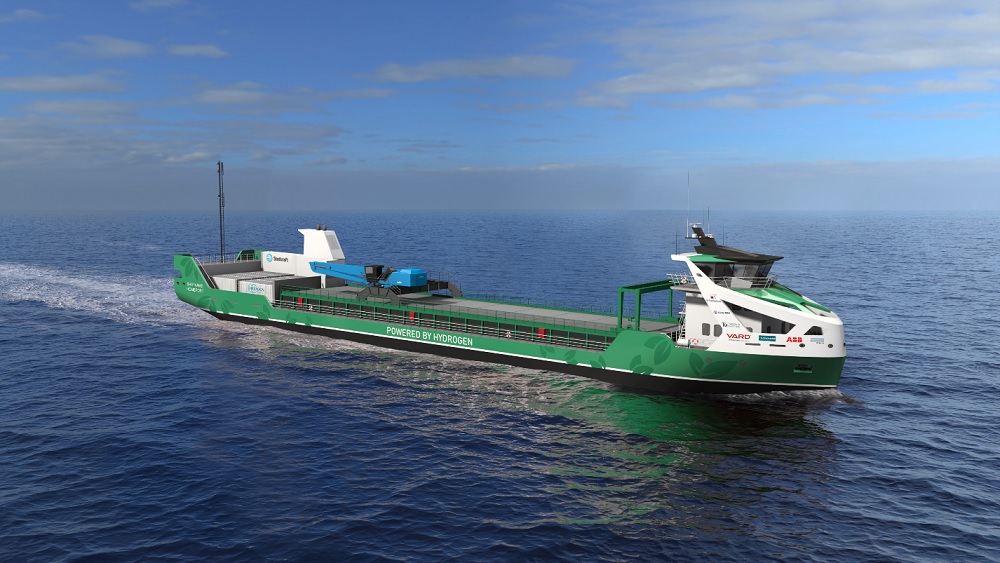ZeroCoaster: ammonia-fueled cargo shipping
By Julian Atchison on December 07, 2021

AFC Energy has designed a developed a containerised, integrated, ammonia-fed propulsion system that will power the new “ZeroCoaster” vessel design. The ZeroCoaster consortium, led by Vard Engineering and including ABB, Trosvik Maritime, SINTEF Ocean and HK Shipping (plus support from the Norweigian government) is developing the next generation of coastal bulk cargo carriers. Norway alone with require around 450 ZeroCoaster-type vessels operating by 2030 to meet decarbonisation targets for the global shipping industry. With the propulsion system design in place, DNV GL granted commercial Approval in Principle to the ZeroCoaster design this week, allowing the consortium to begin discussions with potential buyers.
Back in June AFC Energy began its work with the consortium. Over the course of six months the “marinisation” of its existing fuel cell and ammonia cracking technologies has borne results, with the development of the “S” Series heavy duty platform. Two 600 kW alkaline fuel cell units will be fed with hydrogen produced by ammonia cracking units, with whole system modularised inside 40ft shipping containers. As AFC Energy CEO Adam Bond explains, the use of alkaline fuel cells (rather than PEM) means less than ultra-high purity hydrogen needs to be produced from cracking:
“A key and unique advantage of AFC Energy’s fuel cell technology is its ability to utilise low grade – and therefore, low-cost – hydrogen fuel, such as that derived from ammonia. Ammonia, as a liquid inorganic carrier possessing no carbon-hydrogen bonds, can be ‘cracked’ upon end-point arrival to produce hydrogen and nitrogen, producing only heat and water as reactive by-products – hence, zero emissions.
“The S-Series fuel system, therefore, can provide a current density which surpasses alternative high-power density cells in the market today, without the need for costly, ultra-high purity hydrogen…
“AFC Energy’s belief…is that the [shipping] industry could derive significant benefits from using low cost, readily available and high-energy dense ammonia as a base fuel, given the amount in storage at ports, and the mature fuel distribution network in place.”
AFC Energy CEO Adam Bond in an interview with H2VIEW, 1 Dec 2021